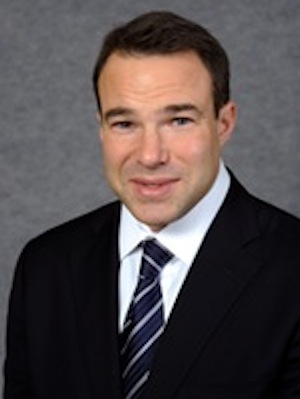With less than a month to go before industry must start collecting data under the Physician Payments Sunshine Act, the Centers for Medicare & Medicaid Services (CMS) clarified how meals and expenses are to be treated under the so-called CME exemption. While that was welcome, lobbyists continue to push for added clarity.
CMS confirmed that CME speaker travel and lodging costs, CME attendee meals provided to a group in a communal/buffet style, and most educational materials are “Sunshine exempt.”
The final Sunshine rule, released last February, had “left some room for interpretation in terms of the treatment of travel, meals and lodging for speakers,” said Andrew Rosenberg, senior advisor to the CME Coalition, which had requested the clarification.
Rosenberg met with the CMS implementation team and presented the industry’s concerns. CMS ended up clarifying an exemption for CME buffets this month. However, what if the meal is served on a plate?
“We’re comfortable we can operate within this buffet exemption,” said Rosenberg. “We want folks to understand that accredited CME is the preferred choice of CMS, and if the event is done the right way, there is no need for reporting. And so for that, we applaud CMS for providing this clear pathway. That said, we still think buffet vs. plated meals is arbitrary.”
All other things being equal, that is. The final rule outlines three conditions to exclude payments to faculty or speakers: payments must relate to an accredited event; not come directly from a manufacturer; and manufacturers cannot select speakers. Pharma, device makers and GPOs must start collecting data August 1 for anything “of value” ($10 per occasion, $100 per annum cumulative).
Broadly speaking, the additional guidance should allow physicians to take part in CME activities on both sides of the podium without concern for being named in the Act’s “Open Payments” database as recipients of industry dollars, said the Coalition.
“The goal here should be to continue to encourage doctors to pursue CME and not create a barrier for uncertainty about the rules,” added Rosenberg.
In a July presentation about the Act’s implementation, he said CMS’ intent is to encourage more CME support, while increasing oversight on promotional activity, and that commercial supporters should have enough comfort in the “CME Exemption” to move forward without fear of penalty.
The Coalition said it still anticipates further guidance outlining possible additions to the list of accrediting bodies that are counted toward meeting the Sunshine-exemption criteria outlined in the Act.
The final rule lists five such bodies: Accreditation Council for Continuing Medical Education (ACCME), American Academy of Family Physicians (AAFP), American Dental Association’s Continuing Education Recognition Program, American Medical Association (AMA), and American Osteopathic Association (AOA).
For example, say a pharmacy board holds an accredited event for pharmacists and wants to bring in Dr. Jones to speak. If she gives a speech, any honorarium, meals or travel expenses are reportable, even though such payments are not reportable if associated with an ACCME-certified event.
Whereas CMS “got it right” when it comes to CME meals, Rosenberg said, “We think CMS made a mistake [by the treatment of accrediting bodies], because there are other accrediting bodies, whether it’s optometry or pharmacy or nursing or others…where the accrediting board has explicitly adopted the ACCME rules.”
The Sunshine rules should recognize any accreditation or certification body that has formally adopted and implemented the ACCME Standards for Commercial Support (SCS), or had adopted the requirements for the CME exemption, the Coalition argues.
As it stands, since most optometrists’ events are not accredited by AMA or ACCME but by the optometry board, optometrists, who are considered doctors under the Physician Payment Act, will not have any events that are Sunshine-exempt. This could also apply to an American doctor speaking at an international CME event.
“It just doesn’t make sense,” Rosenberg said. “CMS took a short-handed way to do it by identifying five accrediting bodies, but it’s arbitrary. There are others that have the exact same rules that ought to be treated the same way. We will be meeting with…the Administration and with CMS to continue to push this. We think, eventually, we’ll win. It’s a bit of a no-brainer.”







